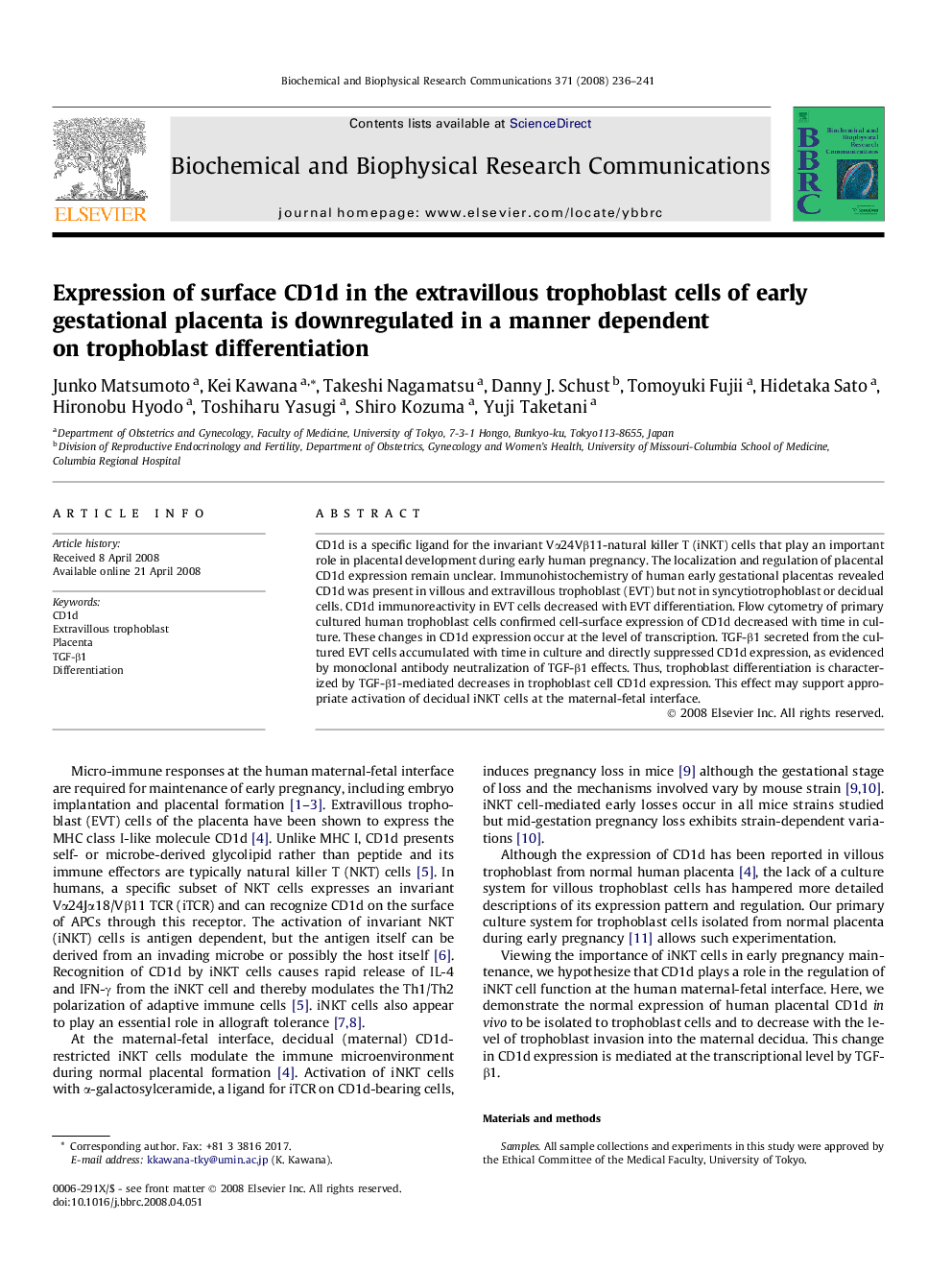| Article ID | Journal | Published Year | Pages | File Type |
|---|---|---|---|---|
| 1935285 | Biochemical and Biophysical Research Communications | 2008 | 6 Pages |
CD1d is a specific ligand for the invariant Vα24Vβ11-natural killer T (iNKT) cells that play an important role in placental development during early human pregnancy. The localization and regulation of placental CD1d expression remain unclear. Immunohistochemistry of human early gestational placentas revealed CD1d was present in villous and extravillous trophoblast (EVT) but not in syncytiotrophoblast or decidual cells. CD1d immunoreactivity in EVT cells decreased with EVT differentiation. Flow cytometry of primary cultured human trophoblast cells confirmed cell-surface expression of CD1d decreased with time in culture. These changes in CD1d expression occur at the level of transcription. TGF-β1 secreted from the cultured EVT cells accumulated with time in culture and directly suppressed CD1d expression, as evidenced by monoclonal antibody neutralization of TGF-β1 effects. Thus, trophoblast differentiation is characterized by TGF-β1-mediated decreases in trophoblast cell CD1d expression. This effect may support appropriate activation of decidual iNKT cells at the maternal-fetal interface.
